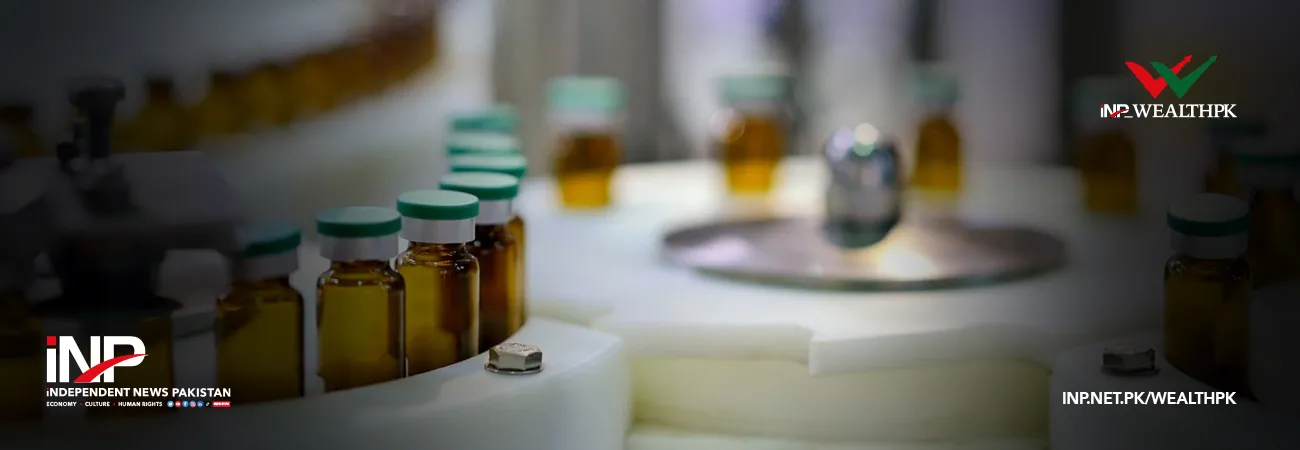INP-WealthPk
Raza Khan
Pakistan’s pharmaceutical exports can increase to $5 billion by 2030 if the industry is provided with policy support and other incentives, Pakistan Pharmaceutical Manufacturers Association (PPMA) said. “The government must recognise the pharmaceutical sector as an industry and establish a dedicated body to promote exports,”PPMAChairman Syed Farooq Bukhari said while talking to WealthPK. He said that the pharmaceuticalsectorwas not recognised as an industry in Pakistan like textile, leather, and engineering goods, which are considered as export growth areas. Bukhari suggested that a dedicated government body or council should be given the task of international projection of the country’s pharma products. “The council should also coordinate various government departments related to the pharma industry,”he added. The PPMA chairman said that global pharmaceutical marketis worth $1.4 trillion now,while Pakistan’s share in this mega market was too low compared to its actual potential. According to the PPMA chairman, the sector can enhance its exports to $1 billion during the next two years, and up to $5 billion by 2030 if it is provided with policy support and incentives.
He informed that currently, Pakistani pharma industry was fulfilling more than 95% of the domestic pharmaceutical requirements. “Our goal is to ensure the availability of quality medicines and to enhance exports by accessing more lucrative markets of Europe and the United States,”Bukhari said. He said the pharma industry,as per various researches, has been identified as an area that carries a great potential for exports. “Currently, Pakistan’s pharma industryexports only to some low stringency markets in lowand-middle-income countries that offer smaller margins and low profitability,”Bukhari pointed out. The PPMA chairman said that compliance with international regulatory standards offers significant benefits to the pharma industry. “We should work on international certification to capture bigger markets to enhance our exports,” he added. Bukhari said if Drug Regulatory Authority of Pakistan (DRAP)works in compliance with international regulatory standards, the local industry will be able to access more lucrative export markets.“If big markets recognise DRAP’s competence in regulating the safety, quality, and efficacy of local products in Pakistan, it means fewer non-tariff barriers and quick market access,”he explained.
He said the government must play a key role by utilising policy tools, offering incentives to the industry to invest in adoption of and compliance with international standards such as WHO PQ (prequalified products), US Food and Drug Administration, Medicines and Healthcare products Regulatory Agency (MHRA) and others. “The government also has an important role to play in supporting pharmaceutical exports through bilateral and multilateral trade agreements, B2B (business-to-business) engagements and facilitation and approvals,” Bukhari said. He also demanded change in the price control regime of pharmaceutical products. “DRAP should only fix the price of drugs on the WHO-essential drug list, while the rest should be left to the market forces,”Bukhari suggested. According to the Ministry of National Health Services Regulations and Coordination, Pakistan’s pharmaceutical exports grew by 98.6% during the fiscal year 2022-23. Pharmaceutical exports were recorded at $713 million during 2022-23 compared to $359 million during the preceding year. Exports of surgical and medical instruments were registered at $407 million, while exports of medicines were recorded at $306 million during FY23.
Credit: INP-WealthPk




